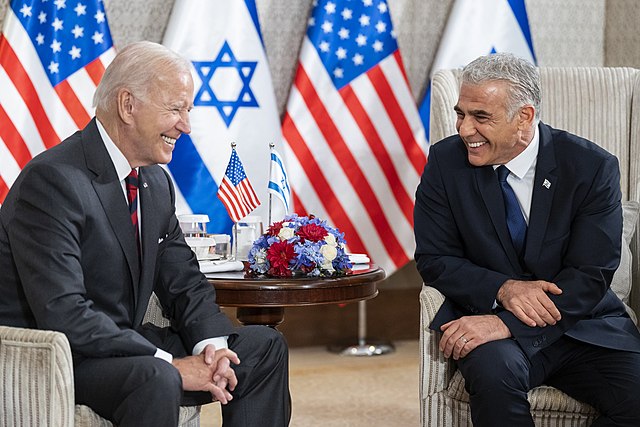Outgoing Interior Minister Ayelet Shaked announced on KAN Radio Wednesday morning that Naftali Bennett refused her request to use his veto power to force as alternative prime minister to force the controversial Lebanon border agreement to be put to a Knesset vote.
The US-brokered agreement between Israel and Lebanon over disputed maritime gas fields essentially grants 100% of the gas to Lebanon and nothing to Israel aside from vague American commitments.
“I told him [Bennett] that he should use his authority in order for the agreement to be approved by the Knesset, that is my opinion, [but] he thought otherwise,” Shaked said during her interview.
“This is more than just a procedure. Every significant agreement in recent generations has been brought for approval in the Knesset… out of an understanding that significant issues need to return to the sovereign, and the sovereign is the Knesset. All the more so for a government that does not enjoy the Knesset’s confidence. From a legal, but mainly public perspective, the correct thing to do is to bring it to the Knesset for approval.”
Shaked’s comments came only hours before the full cabinet of acting Prime Minister Yair Lapid’s transitional government met to approve the agreement and strip the Knesset of any power to do to anything more than merely review the deal. The cabinet decision to block a Knesset vote was crucial, given that the agreement would have likely been voted down.
The fact that a transitional government with no public support has taken for itself the authority to push forward a major diplomatic initiative widely perceived to be against Israel’s national interest should immediately raise eyebrows. Compounding this is the question of why Lapid would even venture to make such a controversial move and weaken Israel’s regional position during an election cycle.
Despite using his temporary role as prime minister to strengthen his image as a national leader ahead of the November 1 vote, Lapid – like many coalition partners – seems to have behaved for the last year as if he’s enjoying his only shot as wielding power and has a limited window of time to push policies important to him.
But even Lapid should know better than to make Israel look this weak ahead of a national election (claims that this agreement constitutes official Lebanese “recognition” of Israel not withstanding) – and to do so in such a way that openly disregards democratic norms.
When major policies – especially policies as divisive as this maritime border agreement – are pushed through the Israeli political system so undemocratically, it should be obvious that our elected officials have made commitments beyond our borders that they’re determined to honor.
This is especially true for diplomatic agreements brokered by the United States.
The most likely explanation is that Lapid [and probably Bennett] had already made guarantees to the Americans regarding the agreement and must now ensure its successful implementation. If so, the Knesset couldn’t be permitted the chance to vote the deal down.
According to reports, US President Joe Biden called Lapid on Tuesday to thank him for moving forward on the agreement.
“You’re making history,” Biden was said to have told Lapid during the call, pointing out that previous US administrations had spend roughly a decade trying to achieve this deal.





